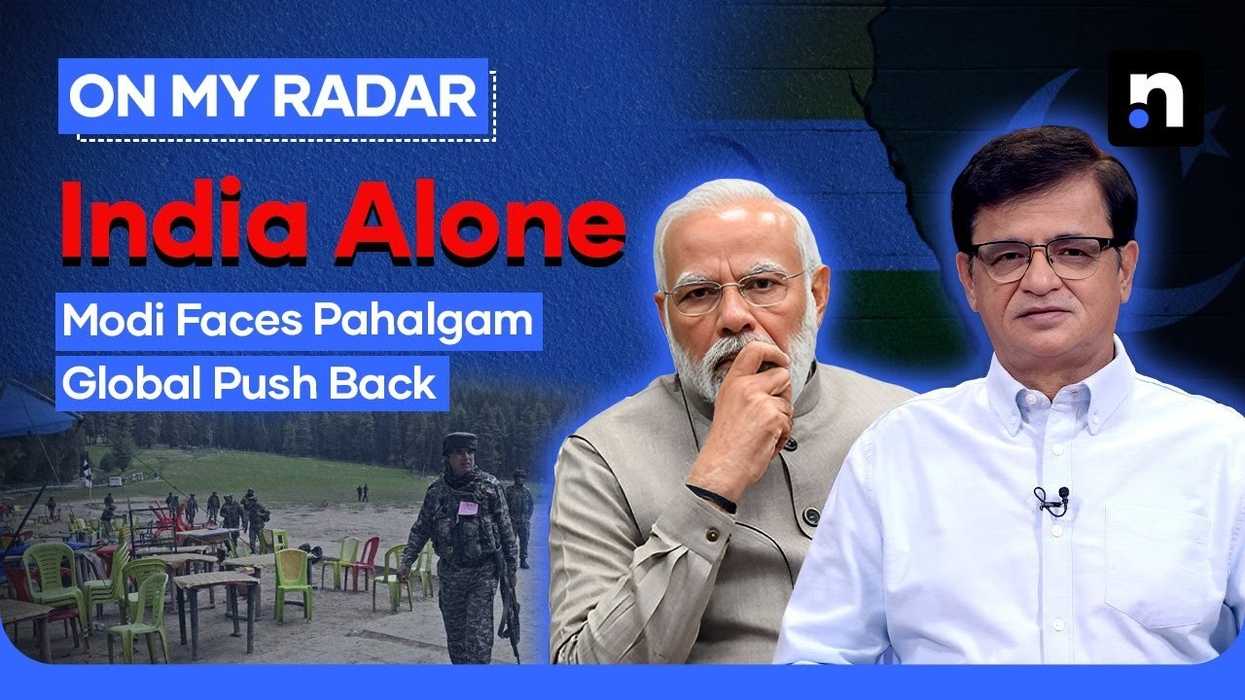India faces rare diplomatic isolation after Pahalgam attack
Kamran Khan says Pakistan gains global sympathy and support while India’s narrative on the attack falls flat
News Desk
The News Desk provides timely and factual coverage of national and international events, with an emphasis on accuracy and clarity.
For the first time in decades of cross-border tensions, India is facing diplomatic isolation over its handling of the recent Pahalgam terror attack, according to Kamran Khan.
In a recent vlog, Khan described the global response to the April tragedy in Indian-administered Kashmir as a “miracle” in Pakistan’s favor. He said the world, instead of rallying behind New Delhi, is refusing to endorse India's narrative and showing openness to Islamabad's call for a neutral investigation.
“This might be the first time in 78 years of Indo-Pak confrontation that India is facing global diplomatic pushback while Pakistan is receiving remarkable support,” Kamran Khan said.
Major powers withhold endorsement
Despite being India’s strategic and economic allies, the United States, Russia, the European Union, and even Iran have refrained from supporting India’s blame against Pakistan for the Pahalgam attack. Two weeks since the incident, India has yet to present conclusive evidence, Khan said.
He outlined three key failures in India’s response: the global refusal to accept its claims without proof; growing calls for an impartial international investigation; and widespread opposition to India's threat to suspend the Indus Waters Treaty.
The U.S. State Department issued a cautious statement, emphasizing the need to avoid premature conclusions. Vice President J.D. Vance also urged restraint from India, praising Pakistan as a “responsible actor” in the region.
Global calls for investigation
International news agencies including AP, Reuters, AFP, and China’s Xinhua have highlighted Pakistan’s call for a neutral probe. The EU’s foreign affairs office also called for a “thorough and impartial investigation” to prevent escalation.
Even countries traditionally close to India, such as Russia and Iran, stopped short of backing its allegations. Chinese officials extended condolences but said all accusations should be based on “objective and verified facts.” Russia’s Foreign Minister Sergey Lavrov urged both nations to settle disputes under the framework of the Simla Agreement and Lahore Declaration.
Switzerland, known for its diplomatic neutrality, supported a transparent and verifiable probe while calling for de-escalation between the nuclear-armed neighbors.
Pakistan’s diplomatic maneuver gains traction
Kamran Khan said Islamabad’s swift condemnation of the Pahalgam attack and its offer to fully cooperate with an international inquiry were seen as a shrewd diplomatic move.
“Islamabad’s proactive stance forced the world to pressure New Delhi: either allow a neutral probe or face global criticism,” he said.
Major outlets such as The Washington Post and Al Jazeera acknowledged Pakistan’s efforts, noting how India’s expectation of isolating Islamabad diplomatically had backfired.
Bangladesh and Sri Lanka also condemned the Pahalgam attack but did not support India's accusations. Iran labeled the incident “cowardly and inhuman” but avoided naming any perpetrator.
Indus Waters Treaty threat alarms the world
India’s reported intention to unilaterally suspend the Indus Waters Treaty—brokered by the World Bank in 1960—has alarmed global stakeholders.
Kamran Khan said New Delhi's move could trigger a “water war,” warning it would set a dangerous precedent for transboundary water agreements worldwide. The treaty, even during times of war, remained intact between the two countries.
World powers including the U.S., China, Russia, and the EU issued statements reaffirming the importance of honoring international treaties and solving disputes peacefully.
The EU External Action Service emphasized that agreements concerning shared resources must be respected under international law. China added that such water treaties are “critical for global peace.”
Switzerland also expressed concern over any unilateral breach, voicing support for “continued practice of international agreements related to natural resources.”
IMF ignores Indian pressure
According to Kamran Khan, India urged the IMF to halt Pakistan’s lending program in light of the Pahalgam attack but was rebuffed. The IMF maintained that loan approvals are based on the majority decision of its executive board, not on individual nations’ preferences.
Following this diplomatic setback, India recalled K.V. Subramanian, its representative to the IMF, six months before the end of his term.
Kamran Khan concluded that India’s aggressive posture has backfired, placing it in an unusually isolated position on the global stage.
“Attempts to isolate Pakistan have only resulted in India’s own diplomatic isolation,” he said. “The world is choosing dialogue, not unilateralism.”
The United Nations also weighed in. A spokesperson for Secretary-General António Guterres emphasized the need to respect international agreements, especially those under multilateral supervision, to promote peace and sustainable development.








Comments
See what people are discussing